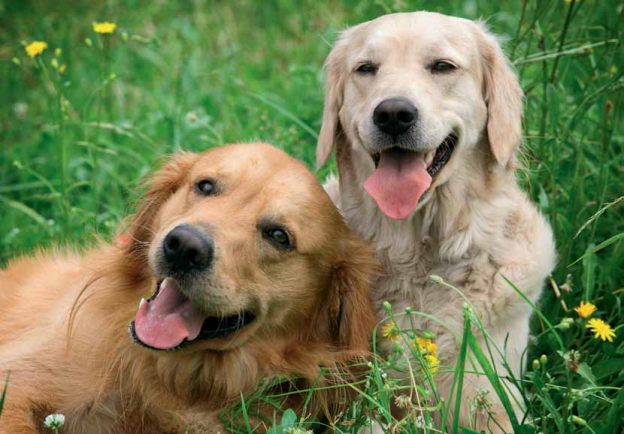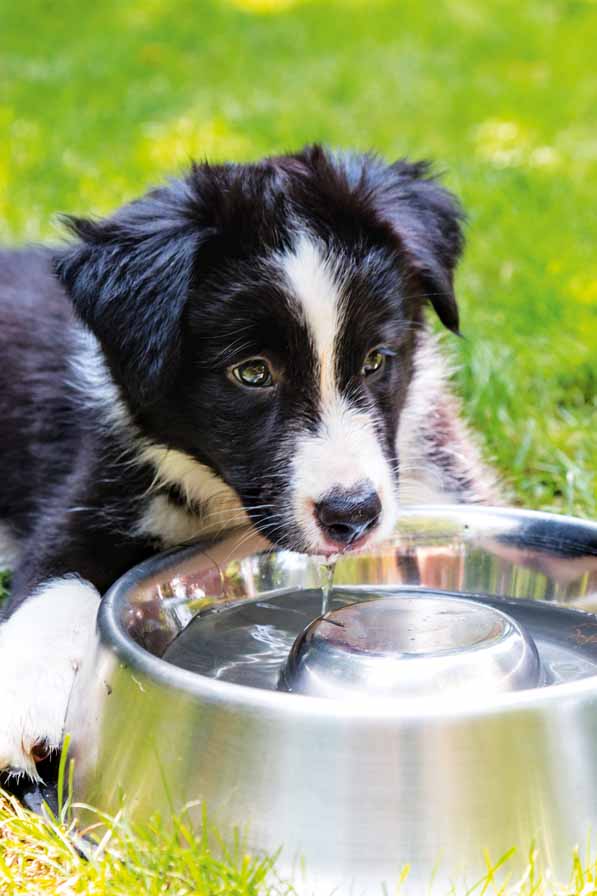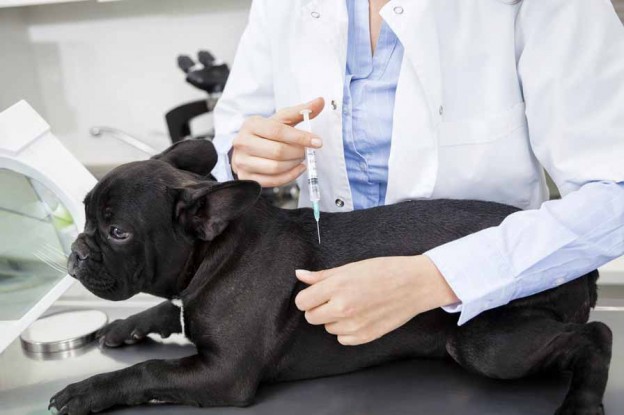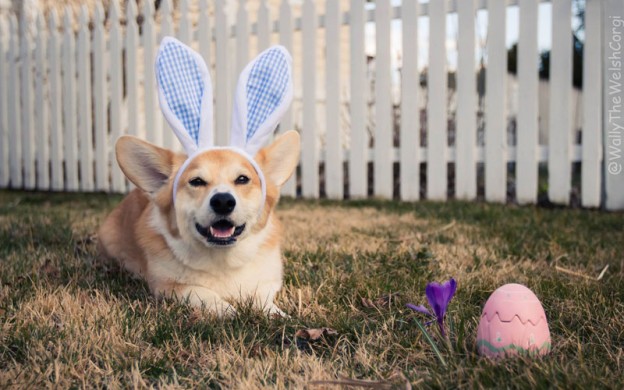
Without proper dental care, up to 80 per cent of dogs will show signs of oral disease by the age of three. But with the help of their owners, dogs can have healthy teeth and gums throughout their lives. Eliza Tickle reports on dental care for dogs.
Strong, healthy teeth are vital to your dogs overall wellbeing and longevity. For the latest canine dental advice, Dogs Life consults with experts, Dr Christine Hawke from Sydney Pet Dentistry, canine dental researcher Dr Wendy Brown from the University of New England, and Dr Wayne Fitzgerald, veterinarian and president of the Australian Veterinary Dental Society (AVDS).
Undoubtedly the most common dental problem in dogs is periodontal disease, which is an inflammation and infection of the gums and ligaments supporting the teeth. Periodontal disease is caused by plaque which builds up when the teeth are not cleaned properly or regularly, Hawke tells Dogs Life. It starts off as gingivitis, but progresses to loss of bone around the teeth and eventually, loss of teeth.
In humans, periodontal infection is linked to cardiovascular disease and in dogs it can affect the rest of the body, including the heart, liver and kidneys.
Hawke, who also lectures at the University of Sydney, says other common dental problems include fractured teeth (which can result from chewing on hard objects or trauma), retained deciduous teeth (where the milk or baby teeth are not shed when the adult teeth come through) and orthodon’tic problems, where teeth are in the wrong position due to abnormal jaw growth or tooth positioning.
Another common dental problem Hawke sees in dogs is tooth root abscesses, where a tooth becomes infected and pus builds up below the root.
Time for a dental check-up?
Most vets recommend annual check-ups for all dogs, and will examine the mouth and teeth at this visit, Hawke says.
However, this can differ for puppies and older dogs. Its a good idea to have your puppys teeth checked at each vaccination, and at six months of age to ensure the adult teeth have erupted properly and there are no retained deciduous teeth or painful orthodontic problems that require attention, she says.
Upon your puppys first visit, the vet will start giving advice about good dental care and the best dental diets, says Dr Wayne Fitzgerald, AVDS president.
As veterinary disease progresses with advancing age, check-ups may need to be more frequent with older dogs than young dogs, adds Dr Wendy Brown from the University of New England. Some veterinary dentists recommend that dogs have a dental check-up and their teeth professionally cleaned every six months, she says.
During a dental check-up, vets will examine the oral cavity, including the teeth and surrounding tissues. Hawke says vets will look for:
- Teeth that are malpositioned or causing pain or tissue trauma.
- Signs of infection or inflammation of the gums (redness, bleeding, gum swelling, pus).
- Plaque and calculus or tartar on the teeth.
- Broken, cracked or worn teeth.
- Other oral problems, such as abscesses or tumours.
When checking the mouth, vets will also look for foreign material trapped between the teeth and irregularities in dentition, such as malocclusions, Brown adds.
After the veterinarian has examined their dogs mouth, all pet owners should ask the vet what they discovered and discuss possible treatments.
Dental diets
There are canine diets available that are scientifically proven to decrease the rate of plaque and tartar buildup. These are special dental formulations that help by either mechanically disturbing plaque as the dog chews, or chemically binding substances that promote tartar formation, Hawke says.
To reduce the incidence of periodontal disease in dogs, hard diets are recommended, rather than foods with a soft consistency (such as canned food).
However, it should be noted that some hard, kibbled diets do not necessarily provide the most optimum texture, and on their own they do not prevent the accumulation of dental deposits in dogs, Brown says. Pet owners should expect to see an improvement in the oral health of their dogs by feeding them one of the many specially textured dental diets.
Dental diets are carefully structured with anti-plaque benefits to clean teeth while dogs eat. When searching for an appropriate dental diet, owners can look for the Veterinary Oral Health Council (VOHC) seal, which means that the dental claims made on packs of food are scientifically proven.
However, there are several other foods that also work that have not been registered with the VOHC, Hawke says.
Pet owners should always consult their veterinarian for advice on appropriate dental diets for their dog.
Chew, chew, chew
Chewing is a useful mechanism for controlling the accumulation of plaque on a dogs teeth. Dogs need to chew, says Fitzgerald, but bones and chews must always be appropriate to the size of the dog. All owners should assess their dogs chewing behaviour before introducing bones into their diet.
Raw bones, such as chicken wings and necks, provide some cleaning of tooth surfaces, Brown says.
Many dog owners have success with raw bones, however, Hawke warns that most vet dentists to not recommend bones as they can be quite hard and cause tooth fractures. Plus, there are associated risks with obstruction.
Avoid cooked bones, warns Fitzgerald, as they can break teeth and get stuck in a dogs throat. Other chew toys, chew treats or rawhides that are softer may be safer for dogs, Hawke suggests. But the size must be matched to the size of dog, so they don’t choke or swallow it and get obstructed.
Fitzgerald also recommends pigs ears for small breeds, such as Maltese and Poodles, as these are suitable for toy breeds and create little mess indoors. Dental treats offer a simple and effective way to improve your dogs dental health. Treats are well-accepted and can be offered in addition to the normal diet at any convenient time, Brown says. Dental treats with proven efficacy have great potential to reduce the incidence of periodon’tal disease in dogs because they are easy for owners and enjoyable to dogs.
However, Fitzgerald says some other treats lack dental benefits and are designed purely as rewards for good behaviour.
The future of veterinary dentistry
Veterinary dentistry has changed dramatically in the last 15 years and it is becoming extremely sophisticated, Fitzgerald explains.
In the past, vets have mainly extracted teeth that were diseased, but with advances in veterinary dentistry, root canals, crowns, orthodon’tic braces and plates can be a viable alternative to extraction. For instance, extracting fractured teeth may be difficult in some cases due to the size or strength of the roots, so root canal may be less traumatic for the dog than extraction.
Fitzgerald cites a case where a young Staffy fractured one of its canines at seven months of age. Rather than extract the tooth, we did root canal, as this was a less-damaging procedure than extraction and it was a much more appropriate option for the dog in the long term, he explains.
Orthodontic treatment with braces and plates is also available to canine patients, to move teeth that are causing pain or trauma, allowing them to be kept rather than pulled out. This allows function to be retained without causing pain, Hawke says.
Unlike many human cases, where orthodon’tic treatment is done for cosmetic reasons, Hawke explains that veterinary orthodon’tics is done in the interests of the dogs welfare: All animals deserve to have a comfortable mouth.
To brush or not to brush?
Brushing is the gold standard for good dental health in humans and dogs alike, so its important to get your dog used to being handled this way, says Dr Wayne Fitzgerald, president of the Australian Veterinary Dental Society (AVDS).
Research shows brushing must be performed at least three times a week to be effective, and few pet owners are willing to comply with this regimen. Brushing is the most effective way to control plaque, which is the primary cause of periodon’tal disease, says Dr Christine Hawke from Sydney Pet Dentistry. But not every pet will have the temperament to allow their owner to brush their teeth.
Some dogs can become quite aggressive when handled around the mouth and compliance is usually very low with smaller breeds. Brushing should be introduced as play, not punishment, Fitzgerald says. Reward your dog after brushing.
Consider these expert tips for brushing your dogs teeth:
- Before you start a brushing routine, take your dog to the vet for a dental check-up. Brushing a dogs teeth when their mouth is sore or diseased will cause pain and fear.
- Introduce your puppy to tooth brushing at a young age. Before you start using a toothbrush, run your fingers along the teeth and gums to accustom your dog to this sensation. Most dogs accept tooth brushing, provided it is introduced gently.
- Look for toothbrushes that are specifically designed for dogs. Some brushes have an angled-head that allows the back teeth to be cleaned thoroughly. Rubber finger toothbrushes are also available, which slip over your finger like a glove and are less obtrusive for the dog.
- If using a human toothbrush, ensure the brush has soft bristles. Electric toothbrushes are also effective for cleaning a dogs teeth at gum level.
- Avoid human toothpaste, as it is not designed to be swallowed. Fluoride should not be ingested and dogs will find the foam of human toothpaste unpleasant. The peppermint flavouring used in human pastes can also be offensive to dogs.
- Dog toothpastes come in great, meaty flavours, such as beef and chicken, and these will help your dog look forward to having its teeth brushed.
While most veterinary dentists agree that tooth brushing is the best way to decrease plaque accumulation, additional methods and products can help to improve your dogs dental health. You can use chemicals, such as mouth rinses or gels, to decrease plaque, but these are best used in conjunction with other methods that physically remove plaque, Hawke says.
It’s important to remember that no amount of home care will be able to control plaque and periodon’tal disease 100 per cent, so all dogs should be taken for regular dental check-ups.







